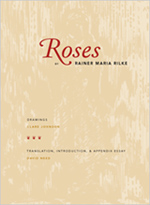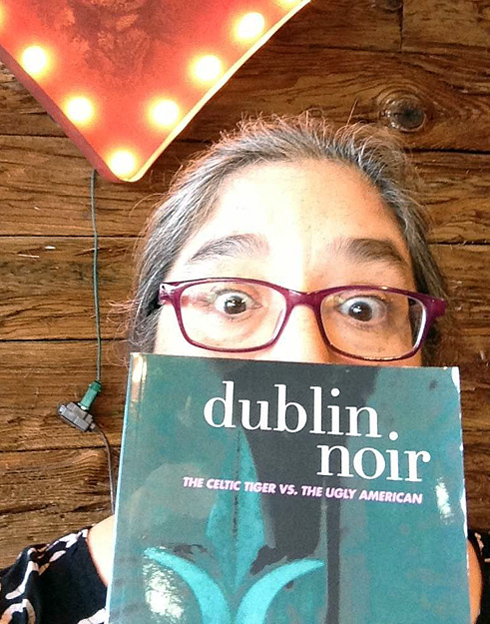It’s time to meet another valued member of the Malvern mob, and today we’re saying a cheery gidday to Layne Ransom. As well as performing assorted Malvern duties, Layne is a poetry MFA candidate in the New Writers Project at UT Austin. And today she’d like to introduce y’all to a rather brilliant collection…
The experience of being a girl or woman is splayed open, truthful and messy innards on display, in Alissa Nutting’s short story collection Unclean Jobs for Women and Girls. The book slips in and out of varying degrees of realism—the narrator of one story makes dinner for a date doomed to a sad uneasy end, while another is literally stuffed with spices and boiling in a cauldron—but possesses a consistently magical undercurrent that allows for the physics of Nutting’s worlds to bend at any given time, should she choose. These are fairytales (the undiluted, bloody kind) and ghost stories for adults that magnify the hilarity and horror of existing as a female human being in many contexts.
In “Model’s Assistant,” the narrator is tossed a bejeweled phone and by default becomes the shadow of an impossibly beautiful model named Garla who, when asked where she’s from, simply replies “Vodka.” Although Garla’s unreliability, the language barrier between her and the narrator, and the ultimately impassable distance between their lives (the narrator refers to Garla’s relentlessly glamorous existence as “model-land”) frustrate the narrator, Garla is the planet around which her satellite cannot help but orbit: “And—how can I deny this—I want more of Garla. She is a rare substance, if only because of the role and power she has in our society and not anything else she holds innately. Rare substances make people feel selfish and greedy, and Garla is no exception. Neither am I.” Crystallized in their relationship is the complex relationship with beauty so many women experience: the awareness our perception and desire of it is inky and troubled, but we still want it–and if we can’t have beauty, we at least want to be valued by someone or something beautiful.
The narrator of “Gardener,” wife of a husband indifferent to their sexless marriage, accidentally catches two of their lawn gnomes having sex and gradually becomes a participant in the escapades of the yard’s creatures and ornaments. Eventually her husband’s rebuffs lose their sting in the pleasure she gets from her bewitched trysts, especially from watching a male gnome with various gnome women: “How he watched me when he was with them, and how I watched him. At first I only watched; I felt like such a simple old woman. But after a while, I began to touch myself while they played, and I watched them watch me. Often I’d cry because their miniature world was just so beautiful. I felt like my love was a giant blanket, the top of a tent, and each night they all came inside of it to move around and make me warm.” The casting off of shame and resignation spun into such an enchanted, earnest narrative makes this a standout of the collection, one of the most straightforward but emotionally affecting stories in Unclean Jobs.
I want to note that in earlier prints of the book, the last story of the collection is narrated by a transgender woman and titled with a transmisogynistic slur. After much criticism, Nutting apologized here for the title and stereotypes the story employs and announced a contest to find the story’s replacement for future prints. (Current prints now omit the story entirely.) Although it is of course troubling this lapse in judgment occurred at all, Nutting’s apology and efforts to make up for her mistake I think serve as an admirable example of how to respond to legitimate criticism and grow as an author and person after falling into error.
The dark sprawl of humor and humanity in Unclean Jobs for Women and Girls is well worth curling up with; it exists somewhere bewitching between page-turner and words to linger over. Anyone who craves stories that exist on other planets, in parallel universes, or in this universe seen through an oddly-colored lens should give it a chance to cast its spell.

 As someone with a profound respect for the modernist era, it is absolutely thrilling to see Rilke’s final batch of poems flawlessly translated and accompanied by such beautiful art and design. This bilingual collection was published posthumously, and it is rare in that it was originally written in French (telling for the Austrian writer). Roses also poses as a great contrast to the dramatic and serious collection Duino Elegies. The poems in Roses are fluid, tinged with love, warmth, wonder, and extraordinary depth. Translator David Need goes above and beyond, providing phenomenal insight and commentary throughout the second half of the book—bringing us closer and closer to mapping the mind of Rainer Maria Rilke.
As someone with a profound respect for the modernist era, it is absolutely thrilling to see Rilke’s final batch of poems flawlessly translated and accompanied by such beautiful art and design. This bilingual collection was published posthumously, and it is rare in that it was originally written in French (telling for the Austrian writer). Roses also poses as a great contrast to the dramatic and serious collection Duino Elegies. The poems in Roses are fluid, tinged with love, warmth, wonder, and extraordinary depth. Translator David Need goes above and beyond, providing phenomenal insight and commentary throughout the second half of the book—bringing us closer and closer to mapping the mind of Rainer Maria Rilke.


 “Screen Door Jesus” by Christopher Cook (from the
“Screen Door Jesus” by Christopher Cook (from the